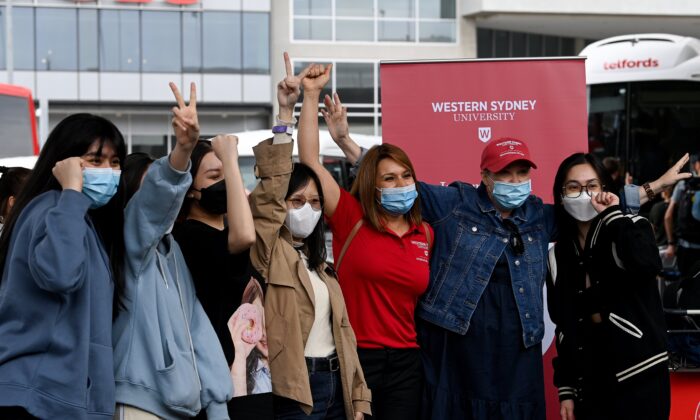Education agents are now directing prospective students to countries like the US, New Zealand, and the UK rather than Australia, according to experts. This shift is due to various factors, including increased student visa application fees and a rise in visa refusals and delays. As a result, Australia’s reputation as a top destination for international students is at risk.
Ian Aird, CEO of English Australia, highlighted that the cost of student visa applications in Australia has skyrocketed, making it nearly double the cost of studying at Oxford University in the UK and triple the cost of studying at Harvard University in the US. This has led to a significant decrease in student visa grants for offshore applicants wanting to study English.
Philip Honeywood, CEO of the International Education Association of Australia, expressed concerns about the impact of proposed legislation to cap international student numbers in Australia. He noted a substantial decrease in overall student visa grants, leading to a significant financial loss for the industry.
Experts warned that the decline in international student numbers could have far-reaching effects on various industries, including tourism, hospitality, and the job market. International students play a crucial role in generating revenue for these sectors, and their absence could lead to reduced occupancy rates in hotels, lower revenues for tour operators and restaurants, and labor shortages in the retail and hospitality sectors.
The potential loss of 15,000 jobs over the year due to visa cuts alone underscores the significant impact of the decline in international student numbers on the Australian economy. The hospitality industry, in particular, has felt the effects of the student shortfall, with a 15 percent decrease in spending reported within the sector.
Moreover, international students contribute to the workforce as part-time workers, and their absence could create labor shortages and operational challenges for businesses. The Australian Retailers Association has called for increased support for international student work to address the current labor crisis.
Amidst these challenges, Greens Senator Mehreen Faruqi raised concerns about international students being caught in a political battle over migration policies. She urged representatives to reconsider the proposed legislation and come up with a more effective solution that supports both universities and students.
In conclusion, the current situation facing the international education sector in Australia requires careful consideration and comprehensive planning to mitigate the negative impacts on various industries and ensure the continued success of the sector.
Can you please rewrite this text?
Source link




